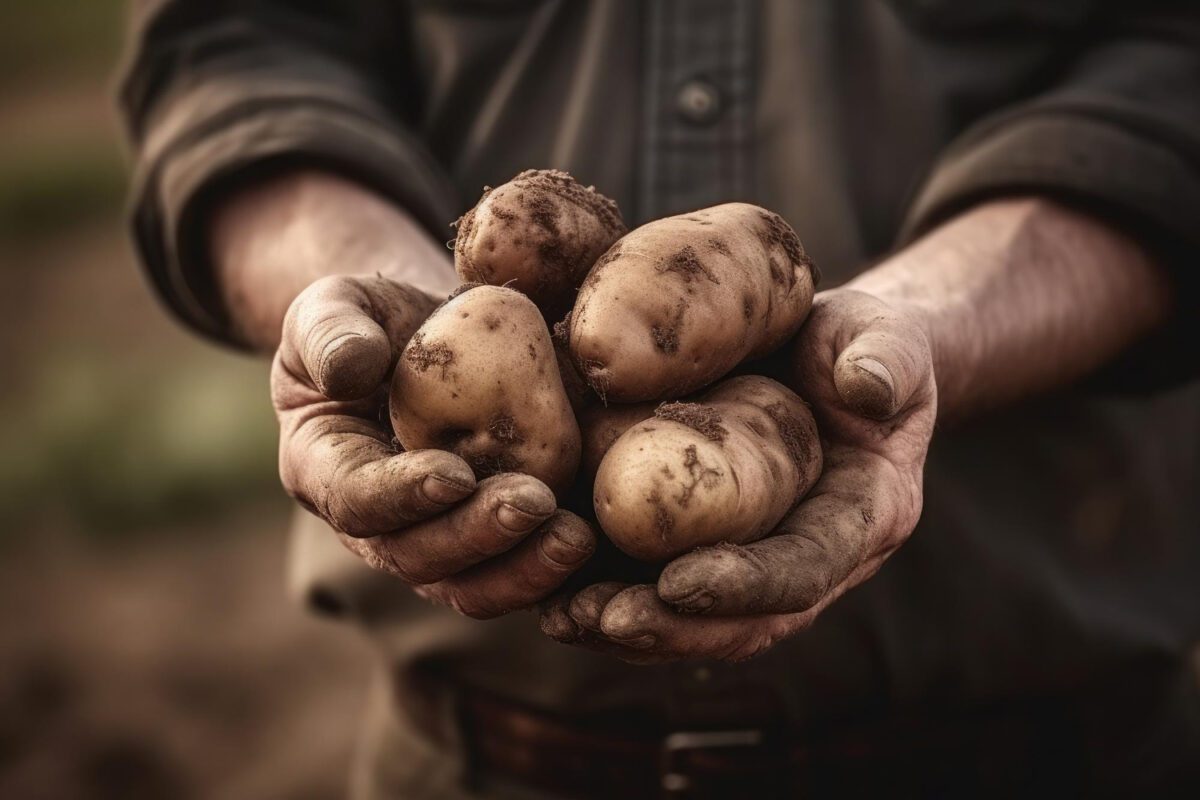Breakthrough Project to Develop Resistant Potato Varieties to Eliminate Late Blight Spraying

A project aimed at creating four potato varieties resistant to late blight disease is poised to revolutionize the industry. Launched in late 2021, the initiative, known as the Global Biotech Potato Partnership, is a collaborative effort involving scientists from Kenya, Nigeria, Indonesia, and Bangladesh, with coordination by Michigan State University. Key partners in this endeavor include the International Potato Center (CIP) in Africa, the Kenya Agricultural and Livestock Research Organization (KALRO), and the Africa Agricultural Technology Foundation (AATF).
Late blight disease has long plagued potato farmers, causing heavy losses and necessitating frequent chemical spraying. Farmers often resort to spraying their crops up to 20 times in a growing season to combat this devastating disease. Dr. Eric Magembe, the project leader in Kenya and a member of CIP, emphasized the need for a more sustainable solution, acknowledging the losses farmers incur during their production process and thus, the intent to choose the best variety out of the four to distribute to farmers and eventually enhance potato output for food and nutritional security, as well as for revenues.
One of the most significant benefits of developing late blight-resistant potato varieties is the reduced need for chemical spraying. Dr. Magembe highlighted the positive impact on both the environment and the general health of farmers, stating, “The environment and the general health of farmers will benefit from the use of fewer chemicals to combat the disease in these GMO potatoes.”
The project in Kenya has already progressed past the confined field trials (CFTs) stage in the Njabini, Muguga, and Molo potato-growing districts. Experts are currently assessing the potentials of the four genetically modified biotech potato types in these regions. Dr. Catherine Taracha, the project’s Principal Investigator (PI) at KALRO, explained that the data gathered from the CFTs would be crucial in determining which varieties should advance to the National Performance Trials (NPTs) stage.
Dr. Taracha stressed the significance of this project for smallholder potato farmers in Kenya, who face numerous challenges, including the relentless threat of late blight. She noted, “Many smallholder potato farmers in Kenya are faced by a number of challenges including potato late blight, whose management continues to be a difficult process by the growers owing to their limited production capacity.”
READ: Biobanking Initiative to Preserve African Indigenous Chicken
Despite being the second most cultivated crop in the country and employing over 2.5 million people, Kenya loses a staggering 30 to 60 percent of its potato yield to the deadly late blight disease each year. Dr. Taracha underlined the necessity of developing biotech varieties to combat this issue, saying, “Due to the inability of resource-strained farmers to control late blight, the optimum management of the disease in the country is likely to be achieved through the development of biotech varieties.”
The National Biosafety Authority (NBA) has granted KALRO and its project partners authorization to conduct late blight disease trials over three growing seasons within the nationwide Multi-Location CFTs (ML-CFTs). Mr. Erick Korir, principal biosafety officer at the NBA, explained that this extended testing period would provide ample data to guide the subsequent phases of the project. He also emphasized the importance of strict biosafety guidelines for field testing biotech crops, given their use of foreign genes. Consequently, the tested biotech potato varieties must remain on the CFT trial site until they receive NBA approval for release into the environment.
Compared to traditional potato varieties, which are significantly affected by late blight, the results from the second round of ML-CFTs reveal that biotech potatoes exhibit higher yields and do not necessitate any chemical spraying.
This ambitious project holds the promise of not only transforming potato farming in Kenya but also offering hope to potato farmers in other countries grappling with late blight disease.



